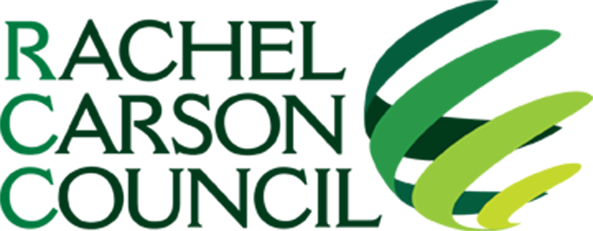RCC Staff
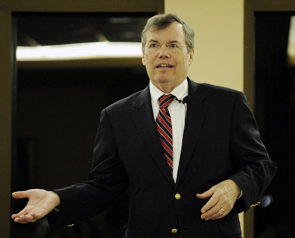 Dr. Robert K. Musil, President and CEO
Dr. Robert K. Musil, President and CEO
As the CEO of the Rachel Carson Council, Dr. Musil speaks and organizes nationwide at campuses and civic organizations, is a key advocate on Capitol Hill, and has increased RCC membership, budget, and staff while developing an extensive and growing grassroots and campus network. He has designed and led RCC organizing efforts in North Carolina, spoken and organized in Florida at campus and community events to oppose the St. Lucie Nuclear Power Plant in collaboration with Beyond Nuclear, and is the co-author of Pork and Pollution, Fowl Matters and Blast Zone.
Musil has been a leader, activist, educator, and author in the national environmental, environmental health, peace and social justice movements for over three decades. He is one of the most respected and senior public interest advocates in Washington. He serves as the President of the Scoville Peace Fellowship; Chairman of the Board of the Council for a Livable World (C)(4) and PAC; Chairman of the Board of the Population Connection Action Fund (C)(4) and PAC; a Board member of Beyond Nuclear; and an Advisory Board member of the Environmental and Energy Study Institute (EESI). Musil is also an environmental educator who is a Senior Fellow and Adjunct Professor at the Center for Congressional and Presidential Studies at American University where he teaches American environmental politics. He is a member of the Board of Trustees of Mitchell College in New London, Connecticut where he is involved in reviewing a new campus master plan and college endowment investments for sustainability and social responsibility. Musil also writes on climate, nuclear and justice issues for the Huffington Post and is the author of three environmental books: Hope for a Heated Planet: How Americans Are Fighting Global Warming and Building a Better Future (Rutgers, 2009); Rachel Carson and Her Sisters: Extraordinary Women Who Have Shaped America’s Environment (Rutgers Press, 2014) and Washington in Spring: A Nature Journal for a Changing Capital (Bartleby Press, 2016).
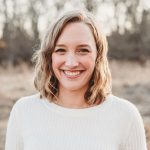 Mackenzie Kirschbaum — Director of Civic and Campus Engagement
Mackenzie Kirschbaum — Director of Civic and Campus Engagement
Mackenzie Kirschbaum is the Director of Civic and Campus Engagement for the Rachel Carson Council. An advocate for environmental justice, climate change and policy, Mackenzie works to combine science, justice, and policy to advocate for imaginative solutions to environmental challenges. She holds a B.S. and a Master of Science in Environmental Science and Geography from the University of Maryland Baltimore County (UMBC). Previously, Mackenzie was an environmental scientist for an engineering firm carrying out stream restoration and GIS projects. She has worked in a range of environmental disciplines, but her passion lies with environmental justice, sustainability, conservation, education, and civic engagement. When Mackenzie is not working, you can find her playing with her dog Duncan, hiking the trails around DC, or trying new restaurants!
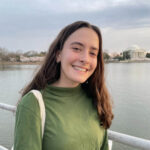 Claudia Steiner — Director of Communications and Development
Claudia Steiner — Director of Communications and Development
An environmental advocate around the clock, Claudia serves as the Director for Communications and Strategic Development at the Rachel Carson Council. She is a graduate of the American University where she studied International Studies and Environmental Science. As an undergraduate, Claudia organized with the university’s student-led divestment movement, helping to secure full divestment from the fossil fuel industry in 2020. She is a believer in the power of messaging and hopes to inform strong climate and environmental policy through communications. She hails from the eccentric town of Maplewood, New Jersey. Outside of work, you can find Claudia reading in Malcolm X Park, cooking vegan food, or patronizing any of DC’s many falafel shops.
 Theo Daniels — Assistant Director of Policy and Programs
Theo Daniels — Assistant Director of Policy and Programs
Theo Daniels, Assistant Director of Policy and Programs, is a graduate of Howard University with a B.S. in Environmental Science and a B.A. in Political Science. Theo has worked for the White House Council on Environmental Quality, the U.S. House of Representatives Select Committee on the Climate Crisis, the NASA Environmental Justice Research Support Team, and Sustainable Capital Advisors. He has also conducted research in La Paz, Bolivia as part of a Fulbright grant, with the Stanford University Mordecai Lab, at the University of Washington, and a myriad of climate science projects at Howard University. In his free time, Theo enjoys playing video games, watching new movies, and thrifting!
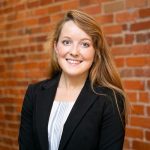 Joy Reeves — Assistant Director of Policy and Programs
Joy Reeves — Assistant Director of Policy and Programs
Joy Reeves, Assistant Director of Policy and Programs, holds a Master’s degree in Environmental Management from the Duke Nicholas School of the Environment, as well as her undergraduate degree as a Udall scholar at Duke in Environmental Science & Policy with a minor in Visual Media Studies. Passionate about climate advocacy and scientific communication, she is the author of Growing Up in the Grassroots: Finding Unity in Climate Activism Across Generations (2020) and the winner of the 2024 Storyfest award from Planet Forward for multimedia journalism. Joy was previously an RCC Stanback Fellow and RCC Presidential Fellow and has held internships at the League of Conservation Voters, the Student Conservation Association, and the Wright Lab at Duke University, where she conducted research on the effects of saltwater intrusion and sea level rise on the coast of North Carolina.
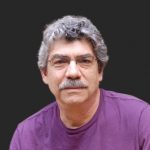 Ross A. Feldner — Publications and Web Consultant
Ross A. Feldner — Publications and Web Consultant
Ross Feldner is the lead, with Bob Musil, of the RCC Bird Watch and Wonder Program. Ross is a life-long birder and photographer who is the editor of the Friends of Patuxent National Wildlife Refuge newsletter. Ross also serves as a guide at the Patuxent National Wildlife Refuge, a frequent birding spot for Rachel Carson who first learned about the health effects of DDT at the laboratory there. He is also the owner/art director of New Age Graphics, a full-service graphic design firm in Wheaton, MD.
 RCC Senior Correspondent — Stephen Shick
RCC Senior Correspondent — Stephen Shick
Stephen Shick is the author of Be the Change and Consider the Lilies (Skinner Books). Shick has taught at the Harvard Divinity School and is the former head of the SANE Education Fund, the Unitarian Universalist Peace Committee, and Consider the Alternatives radio.
RCC Stanback Fellows 2024-2025
 RCC Stanback Presidential Fellow – Sophie Valkenberg
RCC Stanback Presidential Fellow – Sophie Valkenberg
Sophie Valkenberg is a Master of Environmental Management student at Duke University, concentrating in Community Engagement & Environmental Justice and Ecotoxicology & Environmental Health. She was born in the Netherlands but quickly moved to and grew up in Baltimore, Maryland. Coming from a country with a very robust eco-friendly infrastructure initially sparked her interest in environmental studies and sustainable living. She hopes to work in a field that enables her to promote justice and inclusion in environmental work, particularly within communities disproportionately impacted by pollution and suffering negative health effects due to these circumstances. In her free time, she enjoys reading, hiking, and improving her (very minimal) sewing skills. Sophie is honored and eager to expand her experience and contribute to the incredible work of the RCC.
 RCC Stanback Presidential Fellow – Chloe Wetzler
RCC Stanback Presidential Fellow – Chloe Wetzler
Chloe Wetzler is a dual Master of Environmental Management and Juris Doctor student at Duke’s Nicholas School of the Environment and Law School. At Duke, she is the symposium coordinator for the Ocean Policy Working Group and a student researcher for the Nicholas Institute of Environment, Energy, and Sustainability. Chloe is also a member of EarthEcho International’s Youth Leadership Council. Before coming to Duke, she studied Environmental Thought & Practice and Spanish at the University of Virginia. Chloe grew up in Virginia Beach, so she is particularly passionate about coastal and marine ecosystems. Chloe aspires to protect marine biodiversity and make coastal communities more resilient to climate and sea-level rise threats with policy tools. Chloe is incredibly excited to be joining the RCC as a Presidential Fellow.
 RCC Stanback Presidential Fellow – Rachel Weaver
RCC Stanback Presidential Fellow – Rachel Weaver
Rachel Weaver is a Master of Environmental Management student at Duke University from West Jefferson, North Carolina studying Terrestrial and Freshwater Ecosystems and Environmental Economics and Policy. At Duke, she currently serves as graduate research assistant and a member of the Secretariat for the Environmental Peacebuilding Association. Prior to coming to Duke, she received a B.S. in Fisheries, Wildlife, and Conservation Biology and a B.S. in Environmental Sciences from North Carolina State University, along with a certificate in Renewable Energy Innovation and Sustainability from Reykjavik University. Previously, she was a 2022 Directorate Fellow for the U.S. Fish and Wildlife Service’s Combating Wildlife Trafficking team and conducted research in 2023 at NC State University on the impact of climate change on ornate box turtles’ home ranges and movement patterns. Passionate about fostering interdisciplinary collaboration for biodiversity conservation and environmental policy, Rachel draws hope from Rachel Carson’s legacy to inspire others in the environmental field.
 RCC Stanback Fellow – Maria Ding
RCC Stanback Fellow – Maria Ding
Maria Ding is a rising sophomore at Duke University majoring in Financial Economics with an Energy & Environment Certificate. Passionate about energy, she aspires to promote energy transition for the world. Maria is now the Associate Director of Special Programming at the Duke Energy & Climate Club, where she helps committed young people better explore their interests in energy. She has also volunteered at the EPA-RTP office to facilitate environmental education and worked on pro bono consulting projects for 180 Degrees Consulting with companies to achieve their sustainability goals. Before coming to Duke, Maria studied Environmental Science and researched methane emissions regulations and lithium-ion battery technologies. She also popularized information on the Green Olympics as a reporter for the Beijing 2022 Winter Olympics and organized community climate advocacy events as her high school’s Environmental Ecological Club president. In her free time, she enjoys dancing, traveling, and walking in the Duke Garden.
 RCC Stanback Fellow – Zoe Kolenovsky
RCC Stanback Fellow – Zoe Kolenovsky
Zoe Kolenovsky is a rising junior at Duke University studying Public Policy, Environmental Science and Policy, and Journalism and Media Studies. Originally from New Orleans, she experienced the effects of the climate crisis firsthand throughout her childhood and has been engaged in climate justice work since Hurricane Ida hit her hometown in 2021. Zoe is particularly interested in the role communications media can play in improving climate literacy and uplifting the voices of frontline communities to find policy solutions to environmental problems. She serves as the news editor of The Chronicle, Duke’s student newspaper, and is also an executive producer of Operation Climate, a student-produced podcast about environmental issues. She was previously secretary of the Duke chapter of Amnesty International and project lead for a partnership between the Penny Pilgram George Women’s Leadership Initiative and Keep Durham Beautiful, where she worked to produce a sustainability guide for the City of Durham. Zoe is incredibly passionate about environmental justice, and she received the 2023 Chester P. Middlesworth award for her research paper that uses archival sources to examine the centuries of race- and class-based discrimination leading up to the current situation in Cancer Alley, Louisiana. She is excited to join the Rachel Carson Council, where she hopes to leverage her communications experience to promote environmental justice and advocacy.
 RCC Stanback Fellow – Jackson Ronald
RCC Stanback Fellow – Jackson Ronald
Jackson Ronald is a Master of Environmental Management student at Duke University studying Environmental Economics & Policy and Energy in the Environment. Deeply curious and interested in the environment, he is passionate about the intersection of environmental law, indigenous justice and the energy transition. From California, Jackson has seen first-hand the stress that droughts, fires and sea level rise can put on local communities. An active member of Duke Restore’s Eco-cultural team, he helped organize events between Duke and the local Coharie Tribe in North Carolina. Before coming to Duke, Jackson double majored in applied environmental studies and German language & culture studies at Tufts University. His interests include cooking, reading, volleyball and spending time outdoors.
 RCC Stanback Fellow – Jack Sanitate
RCC Stanback Fellow – Jack Sanitate
Jack Sanitate is a rising senior at Duke University double majoring in Public Policy and Theater Studies, with a minor in Environmental Sciences & Policy. Growing up in Michigan around the Great Lakes, he has always been passionate about environmental justice, especially regarding plastic pollution in our oceans and freshwater. He worked at the Duke University Marine Lab last summer researching the effects of light pollution and climate change on sea turtle nesting habits, as well as advocacy for integrating living shorelines into North Carolina coastal properties. At Duke, he is the Fundraising Chair for Alpha Phi Omega, and aims to incorporate environmental consciousness through volunteer work and service. In his spare time, he loves to perform theater and serves as the Publicity Chair of Duke’s musical theater organization, Hoof ‘N’ Horn.
 RCC Stanback Fellow – Hiwot Shaw
RCC Stanback Fellow – Hiwot Shaw
Hiwot Shaw is a rising senior at Duke University studying environmental science and policy with an ethics and society certificate. Adopted from Ethiopia and growing up in eastern North Carolina, she is passionate about environmental justice and addressing unique challenges faced by communities domestically and internationally. She engages in environmental research and advocacy specifically on issues such as clean water, sustainability, and equity within policy. On campus she is a member of Duke Climate Coalition, Street Medicine and Defining Movement (two dance groups). In her free time, she loves dancing, reading, and exploring nature. She is looking forward to her time at the Rachel Carson Council and hopes to learn how to construct legislation that better involves minority communities in the decision-making process.
 RCC Stanback Fellow – Caison Gray
RCC Stanback Fellow – Caison Gray
Caison Gray is a first-year Master’s in Environmental Management graduate student at Duke University’s Nicholas School of the Environment and a graduate of Davidson College with degrees in Environmental Humanities and concentrations in Public Health and Spanish.
At Davidson, Caison completed two environmentally-based study abroad programs with research in Bocas del Toro, Panama and Puerto Natales, Chile. She is deeply committed to work relating to environmental justice, environmental health, and social inequality. Having addressed these issues in Patagonia, in Panama, and her home state of North Carolina, Caison has made having a global and varied perspective on the importance of environmental health and community engagement a priority in her professional and personal life.
Caison brings honed skills in mixed-method research, writing, history, and leadership with a justice-oriented lens to the Rachel Carson Council. She was born and raised in Cary, North Carolina.
 RCC Stanback Fellow – Emely Arredondo
RCC Stanback Fellow – Emely Arredondo
Emely Arredondo is a rising junior at Duke University with a double major in Environmental Science and Policy and International Comparative Studies. Originally from the Caribbean and having lived in coastal communities in the U.S., Emely is driven by environmental work that focuses on coastal resiliency, post-disaster relief, and urban studies. She is particularly interested in how these topics intersect with environmental justice and building community resilience. In high school, Emely was active in two environmental nonprofits, Green Saves Green, and Citizens Climate Lobby. At Duke, she is involved with Green Devils, a student-led environmental internship program via the Sustainable Duke department. She has also worked as a fellow with the Duke Partnership for Service, as a Sarah P. Duke Gardens volunteer, and with the Mi Gente (student Latine organization) Programming Committee.
Emely loves baking (especially bread!), cooking, gardening, walking her two dogs, and listening to Spanish music.
RCC Fellows, 2023-2024
 RCC Fellow – Angela Zhong – Harvard University
RCC Fellow – Angela Zhong – Harvard University
Angela Zhong is a first-generation Asian-American and Harvard junior. She is studying economics, environmental science public policy, and a citation in Mandarin. Hailing from Houston, Angela has felt the impacts of natural disasters and climate change first-hand. She previously served as her school’s first-ever Minister for Climate and Sustainability on the Undergraduate Council Executive Cabinet. Angela is passionate about youth climate advocacy and was fortunate enough to represent youth at COP27, COP15, EarthX 2022, Stockholm+50, C40 Cities Summit, and many more. She also currently sits on the board for The Climate Initiative, ClientEarth’s NextGen team, as well as the UN Department of Global Communication’s Civil Society Unit Youth Steering Group.
RCC Fellowship Project: Angela will be working on designing a curriculum for colleges to prepare their student delegations for following and attending the international climate negotiations called UNFCCC COP, including COP 28 to be held in the United Arab Emirates..
 RCC Fellow – David Novak – UNC Wilmington
RCC Fellow – David Novak – UNC Wilmington
David Novak is a senior at the University of North Carolina Wilmington (UNCW) pursuing a degree in Computer Science. With over three years of professional coding experience, they have honed their technical skills and developed a deep understanding of software development principles. As an enthusiastic and dedicated programmer, David is passionate about leveraging his technical expertise to create effective solutions. He possesses a strong foundation in various programming languages and is adept at utilizing cutting-edge technologies to solve complex problems.
RCC Fellowship Project: David’s project focuses on quantifying deforestation caused by the wood pellet industry. By employing geospatial data and algorithms, they will analyze satellite imagery, land cover data, and other relevant datasets to assess the extent of deforestation caused by the wood pellet industry. Through this project, David seeks to raise awareness about the harmful environmental consequences of this industry and contribute to informed decision-making for sustainable land use practices. David is excited work with the RCC and collaborate with stakeholders, researchers, and organizations in the Southern Forests Conservation Coalition to ensure the responsible management of forest resources and to advocate for sustainable practices.
 RCC Fellow – Meghan Tinnea – Georgetown University
RCC Fellow – Meghan Tinnea – Georgetown University
Meghan Tinnea is a sophomore at Georgetown University with majors in Science,
Technology, and International Affairs with a concentration in Energy and Environment and double minors in International Development and Environmental Studies. After graduating, she sees herself contributing to the fight against climate change as an environmental consultant for corporate and legislative decisions, guided by a lens of intersectionality and equity. Meghan’s history in environmental activism traces back to her freshman year of high school, where she became involved in climate policy and education. At Georgetown, she became President of Georgetown’s Climate Justice Club, and founded a local chapter of Sunrise Movement. She has also held positions as the Environmental Justice Team Lead for the Georgetown Renewable Energy and Environmental Network (GREEN), Councilwoman for the Seattle Mayor’s Youth Climate Council, and Agenda Consultant, Promotional Alliance Coordinator, and Monitoring Team Member for the Washington State Climate Assembly. Meghan is excited about this opportunity with the RCC to continue her passion for a greener future by supplementing legislative change with local and individual action. She stands to uphold Rachel Carson’s legacy of compassion and determination in protecting the Earth and its inhabitants through intersectional environmental justice.
RCC Fellowship Project: Utilizing the Office of Sustainability and her colleagues at the GREEN, Meghan aims to implement composting services throughout Georgetown University, beginning with dining areas. Meghan also expects to increase awareness surrounding composting through educational trainings and activities for freshmen and informative signage. These actions will divert roughly 604,000 pounds of food from the landfill to a commercial composting facility in Maryland. This will significantly reduce methane emissions while also providing carbon sequestration, both beneficial to the battle against climate change. Additionally, the produced soil from composting will reduce the need for chemical fertilizers and has a high water retention, increasing agricultural productivity.
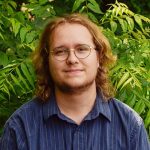 Ben Pluska – RCC Fellow – Appalachian State University
Ben Pluska – RCC Fellow – Appalachian State University
Ben Pluska is a Senior at Appalachian State University studying Sustainable Development with a focus on Community, Regional, and Global Development with a specialization in Visual Anthropology and minoring in Film Studies. Ben is also a research assistant for the Environmental Justice Co-Lab, a collaborative research/activist project spanning multiple universities and environmental justice non-profits in North Carolina. The Co-Labs’ research focuses on how disproportionately impacted communities are getting to justice in the face of industrialized agriculture and other extractive industries. Ben is also an intern at the Environmental Justice Collaborative Action Network in Clinton, NC where they are working on a documentary film of the toxic hazards faced by the community in Sampson County, North Carolina. They are also writing a multi-modal thesis that interrogates perceptions of environmental injustice through the senses focusing on communities in Eastern North Carolina.
RCC Fellowship Project: Ben will develop a campus-wide project about environmental justice in Eastern North Carolina to engage students in classes on sustainable development and environmental justice to develop a collaborative audio-visual exhibition. This project will bring awareness to the environmental injustices that are consuming communities in Eastern North Carolina, as well as equip students on campus with ideas and tools for how they can approach environmental injustice through the intersections of art, scholarship, and activism. With a collaborative media exhibition, research, and educational initiatives, Pluska will work towards building a multi-modal understanding of environmental justice while also invigorating the campus community to engage with EJ activism. This project will culminate in an audio/visual exhibition to be put on at Appalachian State University, as well as in the effected communities of Sampson and Robeson Counties.
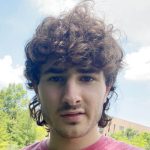 RCC Fellow – Zach Yiannias – Rice University
RCC Fellow – Zach Yiannias – Rice University
Zach Yiannias is a junior at Rice University studying political science, environmental sciences, and history. Born and raised in Wisconsin, he is interested in local politics as well as environmental and energy policy. In addition to conducting political science research on school board elections, he has previously interned with the USDA Forest Service, writing articles for the agency’s southern region. He is currently researching hydrogen energy as a Gulf Scholar with the Carbon Hub and GTI Energy. After college, he would like to pursue a Ph.D. in political science.
RCC Fellowship Project: During the 2023-24 school year, Zach will create a local environmental policy database containing ordinance and resolution templates. After drafting and compiling the templates, he will share the database with communities and residents. By assisting residents with local legislation, he hopes to help communities address urgent environmental problems, including clean water access, wildfire prevention, and flood preparation.
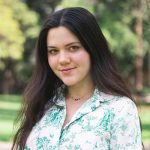 RCC Fellow – Sophia Donskoi – University of Florida
RCC Fellow – Sophia Donskoi – University of Florida
Sophia Donskoi is a master’s candidate focused on climate communication at the University of Florida. She graduated from UCLA, summa cum laude, with a B.A. in Public Policy and Environmental Systems and Society and is the former Assistant General Manager of UCLA Radio, a student-run nonprofit, where she produced several environmental radio programs.
She is a first-generation American who speaks fluent Portuguese, Russian, and English.
For the past two and a half years, she served as the Communications Lead for Jaden Smith’s environmental nonprofit, 501CTHREE.org. Sophia has been a journalist from her elementary school’s morning announcements through college radio. She is experienced in writing, multimedia storytelling, audio production, story development, and scientific and technical communication.
In 2021-2023, she was recognized by the Aspen Institute as one of 100 Future Climate Leaders. She has written speeches for Jaden Smith and Al Gore, and produced content for Complex, Apple TV, YouTube, and NowThis. In the future, she hopes to broaden her impact as a professor of Environmental Communications, teaching others how to effectively tell empowering stories about our environment.
RCC Fellowship Project: Sophia’s project is focused on providing early-career communicators and creatives with a toolkit and course for climate communication. Nearly 30% of Gen-Z is interested in a career related to climate change, but few young people are exposed to opportunities for working in climate. As Gen-Z enters the communications workforce with purpose, it is important to equip them with the tools they need to get involved, as well as discuss climate change in an effective, powerful way. This resource aims to integrate climate action into popular culture by teaching young professionals how to effectively communicate with an aim to help bring climate communication tools to those who need it most: young people taking action in their communities.
 RCC Fellow – Chrishma Perera – Virginia Tech University
RCC Fellow – Chrishma Perera – Virginia Tech University
Chrishma Perera is a master’s student at the Department of Geography, Virginia Polytechnic, and State University, (VT) reading for a master’s in Geography. She is passionate about climate change issues for the most vulnerable and indigenous communities. Her current research work at VT aims to identify characteristics of regional Indigenous health systems and develop indicators for future monitoring of health systems. Her work will collaborate with several countries such as Uganda, Namibia, Ghana, South Africa, Peru, Argentina, Sri Lanka, Fiji, Kiribati, and the Canadian Arctic.
RCC Fellowship Project: Chrishma aims to develop a climate-neutral adaptation plan for the VT campus with three main objectives. First, to develop a “database on climate consciousness.” This will include mapping the individual-level climate-conscious, sustainable practices (using electric vehicles, using recyclable materials) and knowledge about climate change (taking climate change or sustainability-related courses). Second, to draft a “climate adaptation plan and quota” for the VT community based on information collected from the database on climate consciousness. And finally, she is looking forward to conducting a workshop for the VT community on future climate change adaptation options.
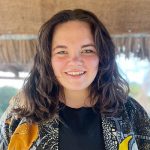 RCC Fellow – Suzanna Schofield – Wellesley College
RCC Fellow – Suzanna Schofield – Wellesley College
Suzanna Schofield is a senior at Wellesley College, double majoring in Environmental Studies and Peace and Justice Studies with concentrations in water conservation, sustainable community development, and public health. She has always had a love for the environment, and specifically wildlife. With a passion for bridge-building, her focus is in reducing human-wildlife conflicts, and more broadly, human-environmental conflicts. Growing up in rural Maryland and being exposed to the world of conservation showed her that though agriculture and the environment are often at odds, neither one’s well-being is possible without the other. This passion then combined with principles of public health. Suzanna has seen firsthand what vector-borne diseases can do to a person as she experienced the long-lasting effects of chronic health issues, starting from a Lyme Disease diagnosis as a child. This journey has led Suzanna towards a career in One Health, or that the health of people is connected to the health of animals and our shared environment. The health of the world will continue to be affected more and more by climate change, and thus, this fuels her activism and advocacy, both on and off campus. Some of these efforts include involvement and leadership in EnAct, the environmental student organization at Wellesley, Fridays For Future Wellesley, the Madeleine Korbel Albright Institute for Global Affairs, World H2O Hub, Inland Ocean Coalition, Amboseli Wildlife and Communities, and more.
RCC Fellowship Project: Suzanna is working towards the establishment of the BOW EnActivists Coalition. Aiming to build a network of students working towards environmental action at Babson College, Olin College of Engineering, and Wellesley College (BOW), all three colleges have experienced recent hurdles regarding sustainability. Furthermore, each respective institution has their own environmental student organization, but these organizations do not collaborate. A coalition would establish a framework to collaborate, align priorities, and improve effectiveness of environmental initiatives, with a specific focus on divestment, climate justice, and more sustainable campuses through efforts like less single-use plastic. This initiative will have a One Health perspective, taking inspiration from Rachel Carson’s fearless
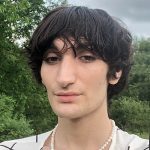 RCC Fellow – Salvatore Cottone – American University
RCC Fellow – Salvatore Cottone – American University
Salvatore Cottone is a junior at American University (AU) pursuing a major in Political Science and a double minor in Environmental Policy and Italian Regional Studies. After graduation, he plans to work in climate policy in Washington, DC and help elect climate champions to federal and state office across the United States. He currently serves as a Senator for the Campus At-Large in American University’s student government and serves in the AU Faculty Senate for the Committee on Undergraduate Curriculum. Salvatore is also the Political Team Leader for the Sunrise Movement at American University. In student government, he authored and passed the Environmental Course Expansion Act in the Undergraduate Senate and helped get a campus-wide referendum for a Green New Deal on the ballot. It passed by 83%.
RCC Fellowship Project: Salvatore will continue advocating for the expansion of American University’s environmental science department but will also lead a campaign to transition AU to 100% renewable energy. In order to make American University a model campus for other universities to follow in renewable energy and sustainability, he intends to mobilize the Undergraduate Senate and Student Government as a whole to advocate for this goal, while launching initiatives to educate and mobilize the student body to become involved.
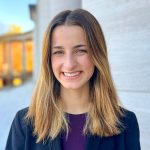 RCC Fellow – Eleanor Crone – Vanderbilt University
RCC Fellow – Eleanor Crone – Vanderbilt University
Eleanor Crone is a junior at Vanderbilt University double majoring in Public Policy and Climate Studies returning for a second RCC Fellowship. Growing up in the small town of Norfolk, Connecticut, she learned to cherish nature at a young age and became passionate about conservation through a GIS trail mapping internship and her volunteer work with the Sierra Club and local land trusts. Eleanor’s research positions in the Vanderbilt Climate, Health, and Energy Equity Lab and the Vanderbilt Drinking Water Justice Lab have furthered her interest in the intersection of environmental justice, social equity, and climate policy. On campus, Eleanor advocates for sustainable change and voting rights by serving as Co-President of DivestVU and President of Vandy Votes. Her internships with the Connecticut League of Conservation Voters and the Environmental Voter Project have offered her experience in political organizing, voter mobilization, and environmental advocacy. Aside from her activism work, Eleanor enjoys playing trombone in the University Concert Band and exploring the Nashville food scene.
RCC Fellowship Project: Eleanor will lead the fossil fuel divestment movement at Vanderbilt University to ultimately convince Vanderbilt’s administration to fully divest the university’s endowment from fossil fuels and reinvest in renewable energy. She believes that Vanderbilt has a responsibility to seek ethical investments and fully commit to maintaining a sustainable institution. As Co-President of DivestVU, a student-led fossil fuel divestment organization at Vanderbilt, Eleanor plans to continue mobilizing the university community through campus events and educational initiatives while focusing the movement’s efforts on climate justice. Furthermore, she hopes to create a website that will unite college fossil fuel divestment movements across the country and offer resources for new and existing divestment campaigns. Eleanor is excited for the opportunity to organize nationally for the RCC with other student activists and inspire others toward climate action.
 RCC Fellow – Juana Eslava-Bejarano – San Diego State University
RCC Fellow – Juana Eslava-Bejarano – San Diego State University
Juana Eslava-Bejarano is a second-year master’s student at San Diego State University (SDSU) in Women’s Studies. They are passionate about environmental justice and its connections with reproductive justice, food justice, critical race theory, critical gender studies, and the animal rights movement. During their undergraduate studies, they co-led the Environmental Committee of the Student Council at La Universidad de Los Andes in Colombia. Juana successfully created three groups on urban reforestation, recycling, and animal welfare, which resulted in growing and planting 300 Tecoma trees in Bogotá, Colombia. Their effort towards creating a community around ecological caring is shaped by how the climate crisis affects communities differently due to the systemic oppression they experienced because of their gender, race, class, and nationality, among other identities.
RCC Fellowship: Juana’s project includes creating a community garden with formerly incarcerated people in San Diego. Their proposal intends to contribute to climate justice initiatives to protect formerly incarcerated communities against the excesses of high temperatures in California, contribute to food security, and provide educational spaces around urban nature. Having the opportunity to grow our food within a community is a fundamental right that allows vulnerable communities to inhabit and be empowered in their own space.
 RCC Fellow – Gianna Hutton González – Pomona College
RCC Fellow – Gianna Hutton González – Pomona College
Gianna Hutton González is a sophomore and Posse Miami Scholar at Pomona College where she studies Public Policy Analysis concentrating in Environmental Analysis. On campus, she currently works for the Sustainability Office and co-leads Pomona’s divestment campaign. In her hometown of Miami, Gianna previously served as GenCLEO strategist for the CLEO Institute, a non-partisan nonprofit organization dedicated to increasing climate literacy and empowering youth to find their voices within the climate movement. She was also co-president of the 2022 Miami Youth Climate Summit to increase climate literacy and inspire action in youth. The struggles her hometown, Miami, faces inspire her to advance climate justice across a multitude of perspectives.
RCC Fellowship Project: Gianna will continue to work with Pomona’s divestment and disclosure campaign to develop a variety of language resources to appeal to students and trustees propelling the campaign. In addition, to further collaboration and community with other campaigns, she aims to create a coalition-guided campus divestment guide and strategies for new and existing campaigns. Gianna also plans to build a curriculum for a class that would create a campus vulnerability assessment based on the UC Berkeley Climate Vulnerability Assessment. In communicating the need for Pomona College to combat climate change, there is little to no released data on our expected regional impacts and this report can give numerical weight and logic to the issue of divestment, appealing to Trustees and administration.
 RCC – Yahaira Galan Cruzes – Catawba College
RCC – Yahaira Galan Cruzes – Catawba College
Yahaira Galan Cruzes is a junior at Catawba College majoring in Environmental Sustainability and Exercise Science. She has a passion for helping people, especially in the health policy and environmental justice field. She plans to increase student engagement through community workshops and environment-related events. During 2023-2024, Yahaira will work as a steward with staff and faculty members at the Center for the Environment at Catawba. As treasurer for the ECO club, vice president of the Spanish Club, and Social Chair for the Retreat Leadership Corps, she is working to connect clubs and organizations on campus through events to share ideas and increase awareness on becoming more sustainable and inclusive.
RCC Fellowship Project: The goal of Yahaira’s project is to showcase how proper land stewardship can be done on a college campus and how it can have a positive social impact on the surrounding community. Her work will include environmental justice community engagement workshops and the development of a pollinator-friendly, nontoxic space on campus that students, faculty, and community members can learn from and enjoy.
 RCC Fellow – Valerie Washington – Virginia Commonwealth University
RCC Fellow – Valerie Washington – Virginia Commonwealth University
Valerie Washington is a graduate student at Virginia Commonwealth University (VCU) studying Urban and Regional Planning with a concentration in Sustainability. She comes into this space with an intersectional lens and a strong sense of justice and liberation, exploring ideas of decolonization, building sustainable communities of color and reversing the effects of environmental racism. Prior to graduate school, Val worked as an adult educator teaching GED and ESL classes. She also worked as a case manager, supporting individuals experiencing homelessness in her hometown of Charlottesville, Virginia. Her community work includes voter registration, restoration of rights, and advocating for access to reproductive healthcare.
RCC Fellowship Project: Val is working on a sustainability plan for the Northeast neighborhood of Harrisonburg, Virginia, an historically Black neighborhood. She is using tenets of environmental justice and Black feminism to center the voices of residents while exploring green infrastructure in order to foster community cohesion and rebuild healthy neighborhoods.
 RCC Fellow – Elinadav Frank – Princeton University
RCC Fellow – Elinadav Frank – Princeton University
Elinadav Frank is a sophomore at Princeton University studying Religion with minors in Environmental Studies, Near Eastern Studies, and Arabic Language and Culture. He is involved in various campus sustainability efforts, including leading both the Green Dining Initiative and Jewish Climate Initiative in addition to being an active member of Divest Princeton and the Conservation Society. He is passionate about sustainable eating, environmental justice, and ecotheology, broadly defined as the intersection between religious practice and environmentalism. He strongly believes that in order to enact dramatic change in mitigating the climate crisis, there must be well founded spiritual and religious connections to caring for the environment. After completing his undergraduate degree, he plans on pursuing a career focused on environmental issues in the Middle East and their intersection with the varying religions in the region.
RCC Fellowship Project: For his project, Davi will continue to work and research for Divest Princeton. Even after the September 2022 partial divestment, Princeton has $700 million invested in private fossil fuel companies, many of which additionally fund Princeton’s flagship environmental research institutions, the Climate Mitigation Initiative, and the Adlinger Center for Energy and the Environment. He plans to educate the campus about this major conflict of interest in Princeton’s climate research. Further, he plans to create a podcast which interviews religious environmental activists across the spectrum about the influence of their religious practice on their activism and how try to galvanize other members of their faith groups to work for the betterment of the environment.
 RCC Presidential Fellow – Molly Weiner – Yale University
RCC Presidential Fellow – Molly Weiner – Yale University
Molly Weiner is a junior at Yale University majoring in American Studies with a focus on law, politics, and the environment and is pursuing a certificate in Advanced Spanish. She has been an RCC Stanback Presidential Fellow and is an organizer with the Yale Endowment Justice Coalition, a movement of students, faculty, alumni, and community members who oppose the financialization of higher education and believe that Yale’s endowment is an inherently political force to be used for moral ends. In 2021, Molly helped found the Fossil Free 5 coalition of divestment organizers at Yale, Princeton, MIT, Stanford, and Vanderbilt; organizers filed legal complaints with the attorneys general in their respective states, arguing that endowment investments in the fossil fuel industry are illegal under state law. Their activism has been featured in CNN, The Washington Post, The Guardian, and Grist, among others. Molly also assists with research at the Yale Center for Environmental Law and Policy, works for the Yale Sustainable Food Program, and edits for the Yale Politic and the Yale Undergraduate Law Journal.
RCC Fellowship Project: As an Presidential fellow, Molly is working to spur divestment from non-profit organizations by engaging institutions in questions of fiduciary duty. She hopes to broaden the reach of her coalition, connect new organizers to this work, and expand RCC’s on-going divestment/reinvestment campaign. As a summer RCC Stanback Fellow, Molly produced a report on energy permitting reforms and advocated on Capitol Hill for the Environmental Justice for All Act.
 RCC Fellow – Caroline Bower – Drexel University
RCC Fellow – Caroline Bower – Drexel University
Caroline Bower is a senior at Drexel University studying Environmental Studies and Sustainability with a concentration in Environmental Policy, as well as a minor in Philosophy. She is currently an undergraduate research assistant with one of her professors, helping to research and compile data on storm surge barriers and their ecological impact. She previously interned with EA Engineering where she worked closely with environmental regulation and monitoring. Caroline is passionate about environmental justice, wetland conservation, and biodiversity preservation. After college she plans on attending law school with goals of becoming an environmental lawyer working primarily in public-interest and class-action law. When she is not in school, she can be found exploring the tidal marshes and beaches along the East Coast.
RCC Fellowship Project: Caroline intends to research hydraulic fracking in Pennsylvania and how it affects the people who live there. She will use her connections at Drexel and in Philadelphia to raise awareness about the hazards associated with fracking. She will also work with politicians in Philadelphia and Pennsylvania to educate them and act towards better regulation, management, and, ultimately, elimination of fracking within the state.
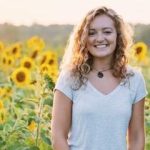 RCC Presidential Fellow – Molly Herring – University of Santa Cruz
RCC Presidential Fellow – Molly Herring – University of Santa Cruz
RCC Presidential Fellow Molly Herring is pursuing a Masters in Science Communications from UC Santa Cruz. She recently graduated from the University of North Carolina, Chapel Hill with a double major in Biology and Global Studies and a minor in Creative Nonfiction. Molly was born in the North Carolina Appalachian Mountains and raised between Richmond and the beaches of Sandbridge, Virginia, but has journaled from the kitchen tables and living room floors of host families all over the world. She has been published in Oceanographic Magazine, Coastal Review, The Marine Diaries, and Cellar Door.
RCC Fellowship Project: As an RCC Presidential Fellow, Molly will be writing regularly for RCC publications, especially creative non-fiction and nature writing inspired by Rachel Carson.
 RCC Fellow – Karina Marinovich – Duke University
RCC Fellow – Karina Marinovich – Duke University
Karina Marinovich is a junior at Duke University studying Public Policy with minors in Psychology and Environmental Science. Being raised by an outdoorsy mother in Colorado instilled in her a deep appreciation for her natural surroundings. However, it was not long before she began to recognize the environmental injustices plaguing Denver. After studying the inequity and environmental degradation associated with industrialized animal agriculture through her high school internship with the Factory Farming Awareness Coalition (FFAC), she embarked on a lifelong pursuit of environmental justice. At Duke, Karina is a sustainability leader, including as chair of the Duke University Student Dining Advisory Committee (DUSDAC), lead content strategist of the Duke Waste Audit, and an independent study about carbon labeling for Duke Dining.
RCC Fellowship Project: As an RCC Fellow, Karina will deepen her exploration of carbon labelling on college campuses. She seeks to increase student awareness about the environmental impact of different foods and inspire her peers to adopt more sustainable dining choices. In order to accomplish this, Karina plans to provide her peers with the necessary information about the carbon impact of their dining choices through a Duke Dining menu labelling system that she will implement.
 RCC Fellow – Dylan Cawley – Duke University
RCC Fellow – Dylan Cawley – Duke University
Dylan Cawley is a sophomore at Duke University, majoring in Environmental Science & Policy with a minor in Inequality Studies. He is passionate about exploring the intersections of climate change and environmental justice through an economic lens. Before Duke, Dylan spent a gap year fighting wildfires in Northern California for the California Conservation Corps and has since worked for the US Forest Service on an Interagency Hotshot Crew. On campus, Dylan is a member of Duke Student Government, an Ambassador for the Office of Sustainability, and a researcher in the Duke Economic Analytics Lab.
Project Description: Dylan’s project seeks to investigate current efforts to address food insecurity in Durham County, NC, following the COVID-19 pandemic. Home to more than one hundred food distribution centers and fifty-eight food pantries, Durham County has experienced growing rates of food insecurity since the late 2000s. Pandemic-driven stimulus expanded relief efforts and saw the creation of new food banks, distribution networks, and micro-financing systems. In the ensuing years, however, state-level funding for food assistance has diminished, placing greater pressure on independently-run local food pantries. Dylan’s project will interview local government officials, food pantry leaders, and their constituents to determine how to better synergize public and private food programs at the county level.
 RCC Presidential Fellow – Joy Reeves – Duke University
RCC Presidential Fellow – Joy Reeves – Duke University
Bio: Joy is a Duke University student from Frederick, Maryland, pursuing a Master’s degree in Environmental Management, returning for a second RCC Fellowship. Passionate about climate advocacy and scientific communication, she is the author of Growing Up in the Grassroots: Finding Unity in Climate Activism Across Generations (2020). Joy was previously an RCC Stanback Fellow and has also held internship positions at League of Conservation Voters, the Student Conservation Association, and the Wright Lab at Duke University, where she conducted research on the effects of saltwater intrusion and sea level rise on the coast of North Carolina. During her undergraduate career at Duke, she received her degree in Environmental Science & Policy with a minor in Visual Media Studies, as well as a Udall scholarship for environmental leadership and public service. She aspires to merge her background in visual communications with her passion for clean energy justice with a focus on solar energy policy.
RCC Fellowship Project: Joy’s project is to serve as an environmental writer and analyst for the RCC with an emphasis on climate justice. She writes blog pieces, Op-eds, produces resources in the areas of wood pellets, sea level rise, and topics of special interest. Joy also represents the RCC at key events in North Carolina.
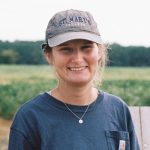 Lily Riesett– St. Mary’s College of Maryland
Lily Riesett– St. Mary’s College of Maryland
Lily Riesett is a senior at St. Mary’s College of Maryland majoring in Political Science with a minor in Environmental Studies. She is a returning RCC Fellow interested in environmental justice and is passionate about educating and serving rural communities. She has also completed a fellowship, internship, and contractual position for Ballotpedia, a voting rights non-profit. Reaching communities that have been denied voting assistance due to proximity to resources is something Lily cares strongly about. On campus, Lily acts as Student Body President, the copy editor of her school paper, The Point News, an intern for the Kate Chandler Campus Community Farm, and a member of the Varsity Rowing team.
RCC Fellowship Project: Rural Maryland is known for its rich agricultural history; from oyster farms on Maryland’s coast to chicken production on the Eastern Shore, the state relies on its farming communities. Unfortunately, across Maryland, one group of farmers has been systemically left out of conversation regarding the history of food production in our state: women. In response, Lily’s project will develop a Resilience Garden at the Kate Chandler Campus Community Farm. The Kate Farm is where St. Mary’s students interested in sustainable agriculture and environmental justice are able to work on and institute agricultural projects. The Resilience Garden would feature a rotating variety of plants once cultivated by the working women of Maryland, as well as give students of all backgrounds an opportunity to farm them. The plot of land would be used each season to grow produce that would have been planted by the women who once lived and worked on this land. The Resilience Garden Project will honor the lives of forgotten women in agriculture by actively working the land they did, growing the things they grew, and understanding the connections between these concepts and today’s environmental justice issues.
 RCC Fellow – Nathan Villiger – St. Mary’s College of Maryland
RCC Fellow – Nathan Villiger – St. Mary’s College of Maryland
Nathan Villiger is a senior at St. Mary’s College of Maryland majoring in Environmental Studies with a minor in Political Science. With a passion for agricultural and food systems sustainability and environmental storytelling, Nathan has interned with the University of Maryland Extension Service, gaining valuable experience in research, data analysis, and community outreach. On campus, Nathan edits the world news section of St. Mary’s College’s student paper, The Point News, and is a member of the Kate Chandler Campus Community Farm’s Management Co-Op.
RCC Fellowship Project: Today, Smith Island, Maryland is unique. It remains Maryland’s last waterlocked community, where, for almost four hundred years, the island’s resident watermen have plied the Chesapeake Bay in search of blue crabs, oysters, and rockfish. Smith Island is also notable for another, tragic reason. By 2100, rising sea levels will completely submerge Smith Island, making Smith Islanders among Maryland’s first climate refugees. How will we remember these casualties of anthropogenic climate change? The Smith Island Project endeavors to answer this question by blending photojournalistic depictions of life on contemporary Smith Island with oral accounts from the remaining islanders to effectively freeze a version of Smith Island in time, one that remains undrowned and unbowed. The Smith Island Project will be a series of photo essays, consisting of multiple photographs interspersed with prose, historical context, and – most importantly – the testimony of individual islanders. The aim is to create a profound cultural artifact that can serve as an epitaph for Smith Island, and, by capturing even a small amount of the spirit of place, reveal what has made the island unique.
 RCC Fellow – Valeria Obregon – St. Lawrence University
RCC Fellow – Valeria Obregon – St. Lawrence University
Valeria Obregon is a senior at St. Lawrence University majoring in environmental studies and sociology and minoring in gender studies. She has studied abroad since she was seventeen having lived and studied in four different countries: Mexico, Singapore, Italy, and the United States. During her time at St. Lawrence University, she has been part of the Sustainability Program cohort of 2021-2022 and founded the club “SLU Close the Loop”, an environmental initiative to reduce waste on campus. In addition to her co-curricular activities, she has also interned at organizations which include Waterkeeper Alliance, Tijuana River National Estuarine Research Reserve, and Benvenuti Arts. Valeria has a passion for the arts, especially protest art and muralism. She is involved as well in various social movements, specifically the feminist movement in Mexico, migration, and climate change.
RCC Fellowship Project: For project, Valeria will be working with the RCC to strengthen “SLU Close the Loop”, an initiative she started in 2021, to reduce waste and foster an exchange culture at St. Lawrence University through different activities such as swapping events, upcycling workshops, and environmental education in collaboration with other clubs on campus. This year she will focus on working on a consumption awareness campaign by developing indicators to quantify waste on campus, as well as recruiting passionate and committed students to take over when she graduates next year.
 RCC Fellow – Rahul Inaganti – Drexel University
RCC Fellow – Rahul Inaganti – Drexel University
Rahul Inaganti is a sophomore at Drexel University pursuing a major in environmental studies and sustainability, with minors in biology and public health. His passion for the natural world stems from his family history in the state of Andhra Pradesh, India, where his relatives have maintained farmland for generations. As a result, Rahul has formed deep interests in ecology, sustainable agriculture, as well as human health and nutrition. He greatly enjoys research in both the social and natural sciences and has worked on several projects whose topics have ranged from integrated pest management to mitigating urban heat islands in Philadelphia.
RCC Fellowship Project: Rahul’s goal for the 2023 Rachel Carson Council is to bring an end to the use of toxic herbicides on Drexel’s campus. He will build upon the work of previous RCC Fellows to plan and execute a formal research project which aims to determine the efficacy of organic land management practices. To accomplish this task, he will recruit student volunteers to gather data relating to soil health and weed cover at two locations: Drexel Park (which became the pilot site of the organic transition in April of 2023), and Lancaster Walk (which still undergoes conventional land management). By compiling and analyzing this data, Rahul hopes to generate a comprehensive study which compares the costs and benefits of both land management strategies. He hopes this data can be used to justify organic transitions at other college campuses and eventually the rest of Philadelphia.
 RCC Fellow – Aaditi Lele – Vanderbilt University
RCC Fellow – Aaditi Lele – Vanderbilt University
Aaditi is a junior at Vanderbilt University and returning RCC Fellow, majoring in Climate Studies and Political Science on the International Politics track, with a minor in South Asian Language and Culture. After graduation, she hopes to attend law school and focus on the intersection of climate justice and international migration law, sparked by her passion for the environment and her immigrant roots. Aaditi also serves as the Editorial Director for her campus newspaper, The Vanderbilt Hustler, the President of Vanderbilt Women in Government, and the Policy Director for the climate advocacy group Zero Hour. She also loves writing and has previously written for The Washington Post, Teen Vogue, Truthout, and more. She is excited for this opportunity with the RCC to continue her work in fossil fuel divestment and push for equity and climate justice.
RCC Fellowship Project: As a leader in her school’s fossil fuel divestment campaign, Aaditi spent much of the last year writing and coordinating a legal complaint strategy against Vanderbilt, arguing that the school violated its fiduciary responsibilities as a non-profit institution because it refused to divest from its fossil fuel holdings. Through this work, Aaditi helped build out the Fossil Free 5 network, a coalition of student-led divestment campaigns that filed simultaneous legal complaints which were featured in the Guardian, the Washington Post, and more.
With the RCC, Aaditi now will be building out a resource hub to support emerging divestment campaigns at campuses nationwide. She hopes to create a space where college divestment organizers can share advice, skills, and tactics to unify the movement. She also intends to use the RCC campus network to create a series of resources and training guides for college organizers to help them educate their peers about environmental justice and the impact of fossil fuel divestment.
